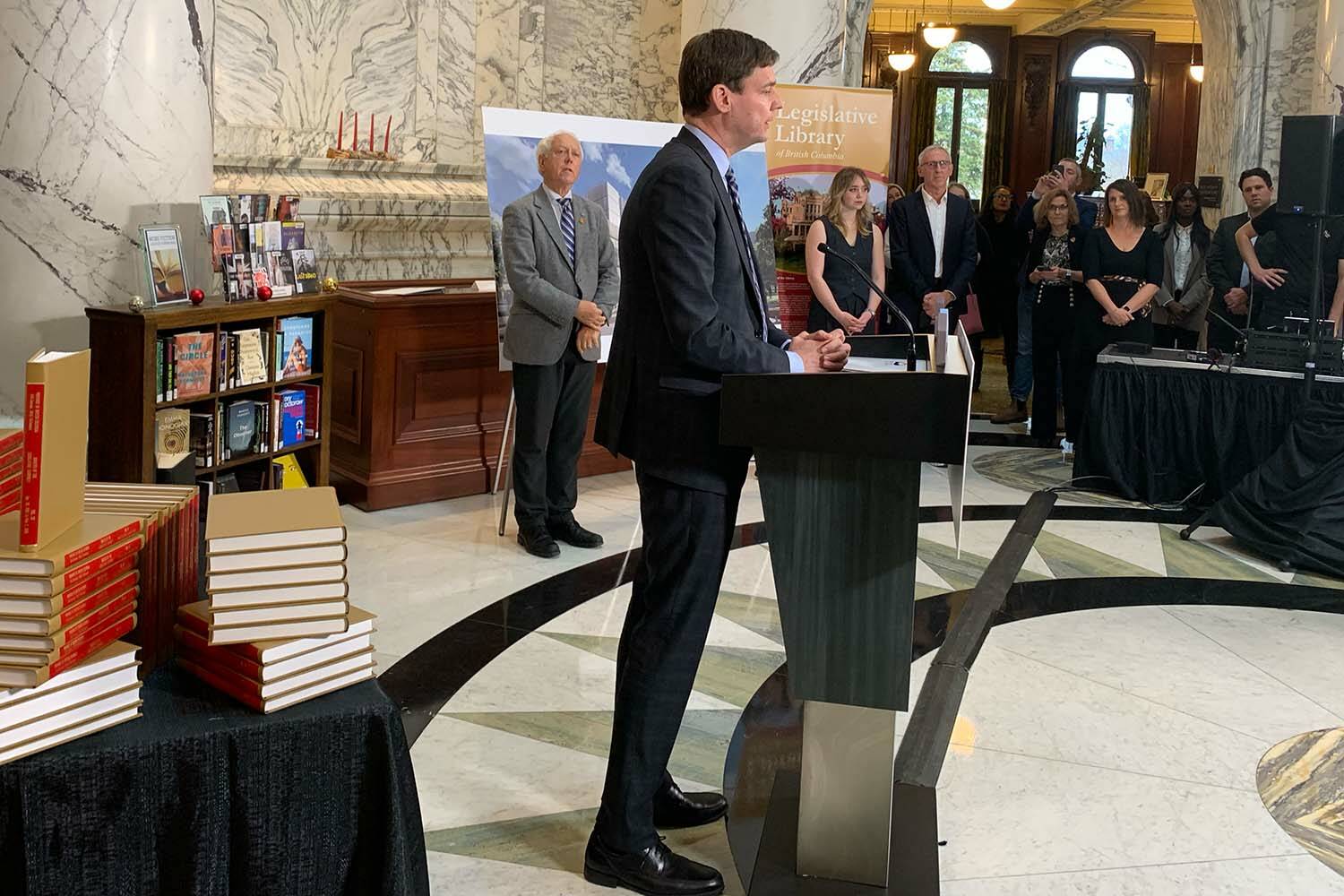The provincial government Wednesday (Nov. 29) passed what is perhaps its most important piece of housing legislation after limiting debate on it, much to the chagrin of the opposition.
Bill 44 passed with 45 votes in favour from the New Democratic caucus with 29 votes against coming from BC United, BC Greens, the Conservative Party of BC and independent Adam Walker.
The bill increases density across most B.C. municipalities. Starting July 1, 2024, developers will be able to start building a minimum of three and up to six units (near transit) on lots currently zoned for single-family homes and duplexes in municipalities above 5,000 people home to 90 per cent of the provincial population.
While passage of the bill was never in doubt, the process of passage came to the forefront Wednesday when Housing Minister and Government House Leader Ravi Kahlon limited debate.
“The responsibility of the House is to…ensure that all items receive the attention they deserve and they are not obstructed,” he said.
The move drew a combination of outrage and mockery from the opposition, with the respective house leaders of BC United (Todd Stone) and BC Greens (Adam Olsen) denying the existence of a consensus around the government’s move.
“Thank you, Mr. Chair and thanks to the Government House Leader for being generous with the time to debate this bill,” Peter Milobar, MLA for Kamloops-North Thompson, said. “We now have nine minutes, 10 minutes left to canvas 21 more sections in this bill,” he said in accusing government of not wanting to talk about the bill in detail.
Various voices including government leaders consider Bill 44 in combination with other housing-related legislation significant changes to future land use and urban planning processes. But opposition voices have also lamented the ability to scrutinize the bills individually and analyze them in their totality, with the fall session ending Thursday (Nov. 30).
RELATED: New housing legislation promises to create 130,000 homes in B.C. in 10 years
BC Green Leader Sonia Furstenau raised these points in her last media availability.
“What is happening more and more, the game is becoming more important than the work,” she said. “When we have a government that is manipulating when we can and can’t debate bills, changing their mind at the last minute, putting a huge amount of legislation on the table, with very limited time to debate it, and then answering questions in an open and transparent way, it seems more and more like a government that has something to hide.”
With the session ending Thursday, it means that legislators won’t have the ability to fully understand Bill 44 as well as the other pieces of housing legislation.
“That alone is something to hide,” she said.
For government to be effective, it needs to be open and transparent, she said, adding that transparency helps builds trust in government, thereby fighting the rise of populism.
Both Premier David Eby and Kahlon need to answer why the legislature has reached a point, where government needs to limit debate, she said, adding it is not for government to decide how much time the opposition should have to debate bills.
“This is a government that has been there since 2017 and they waited until three weeks before the end of a fall session to bring in their legislation,” she said. “So I think that pointing at somebody else and saying it’s their fault that I didn’t get my work done on time is not an excuse.”
Premier David Eby defended his government’s management of the house Wednesday afternoon at an unrelated event before Kahlon limited debate on Bill 44.
B.C. for many years has not had fall sessions, he said.
“We have had significantly more sitting days, we’re trying to recognize the reality of our Legislative Assembly as it stands right now,” he said. Right now, it has four parties and one independent, “all of whom have the right and need to ask questions about legislation,” Eby said. “This has required additional time to respond to that. “
With that comment, Eby referred to the recent extensions of sitting hours last week and this week, including Wednesday. That has ensured that “people are able to canvass legislation in detail,” Eby said.
“(It)’s an important role for opposition parties to be able to do that, something that I did for four years…so it’s certainly something we support.”
Eby said he met with Furstenau Wednesday morning to discuss these issues.
“She reminded me of her interest in more time, more opportunity to canvas bills and we will continue to look for ways to improve the way this space operates,” he said.
Eby later expressed hope of being able to work better with the opposition parties.
“But right now, it has been a challenge,” he said, noting that the legislature has been sitting and debating these bills for almost 12-hour-long days. But he also added that that British Columbians can’t wait on these initiatives to housing. The province is facing a housing crisis right now, he said.
“(We) feel a sense of urgency around these reforms as well,” he said.
@wolfgangdepner
wolfgang.depner@blackpress.ca
Like us on Facebook and follow us on Twitter.

